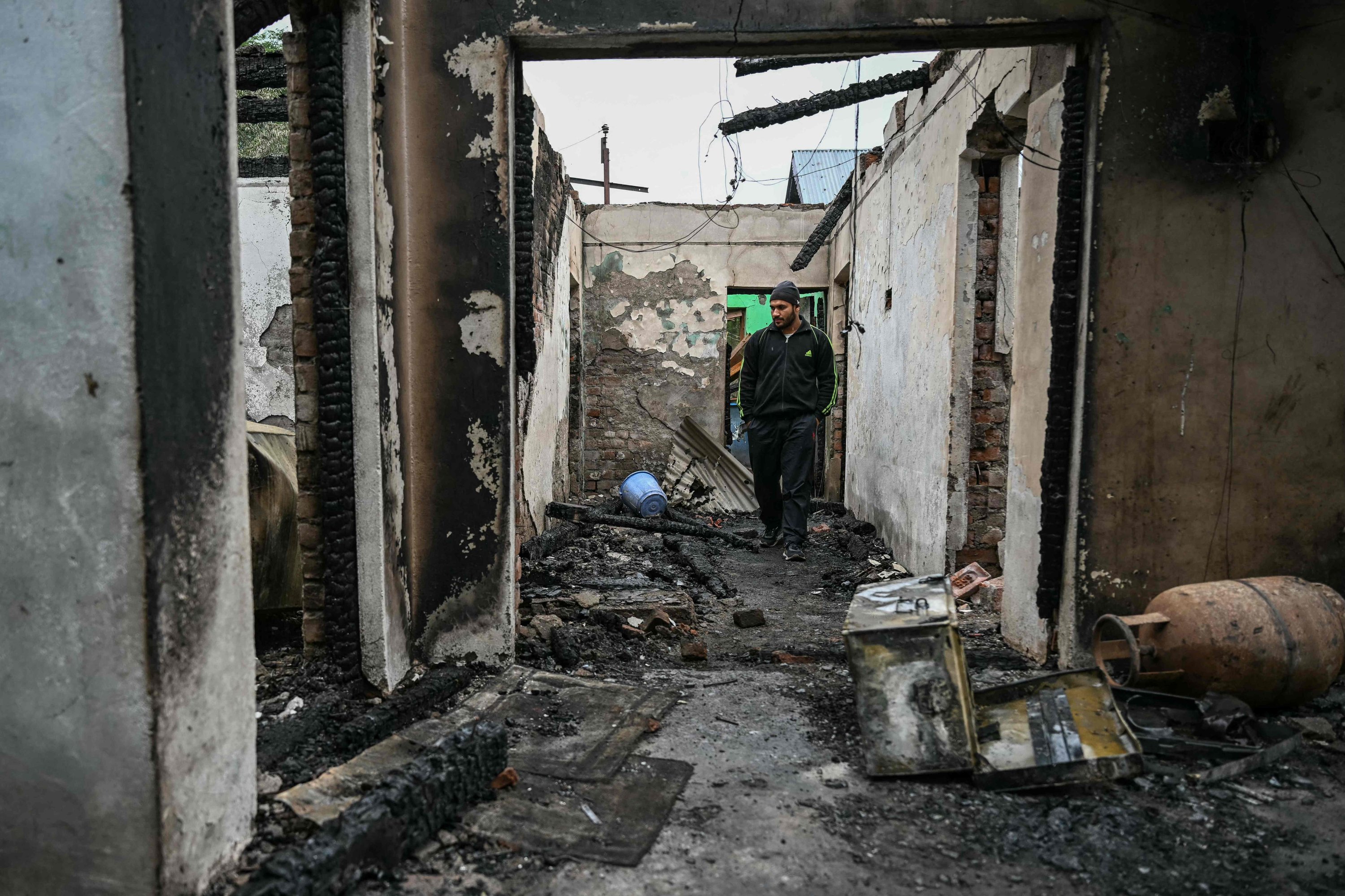© Turkuvaz Haberleşme ve Yayıncılık 2026
India and Pakistan exchanged fresh military attacks on Friday, marking the third consecutive day of heavy fighting between the two nuclear-armed neighbors.
Drones, artillery and missiles have dominated the conflict, resulting in dozens of casualties as tensions soar to their highest level in nearly 30 years.
The violence erupted when India launched strikes on multiple locations in Pakistan on Wednesday, claiming they were “terrorist camps,” in retaliation for a deadly attack on Hindu tourists in Indian-administered Kashmir.
Pakistan denied involvement in the attack, but the ensuing conflict has seen both countries engage in relentless cross-border fire and shelling, while drones and missiles have penetrated each other's airspace.
At least 48 people have died, with casualties mounting on both sides.
Villages along the border have been abandoned as residents flee to safer areas, while major cities face blackouts, air raid warnings and widespread panic buying of essentials.
In a further sign of disruption, India has suspended the prestigious Indian Premier League (IPL) T20 cricket tournament after a match was abruptly halted on Thursday when floodlights were switched off mid-game.
This marks the deadliest flare-up since the Kargil conflict of 1999, a limited war fought in Kashmir.

India's recent airstrikes targeted cities in Pakistan’s mainland for the first time since the 1971 war, breaking a long-standing taboo against attacking territories outside Pakistan-administered Kashmir.
India’s military accused Pakistani troops of violating cease-fire agreements along the Line of Control (LoC) in Kashmir, an area divided between the two countries but claimed in full by both.
The Indian army responded, claiming to have repelled drone attacks and promising further retaliation for “nefarious designs.”
However, Pakistani officials rejected India’s claims, with Information Minister Attaullah Tarar calling the accusations “baseless” and insisting that Pakistan had not engaged in any offensive actions.
The conflict intensified further in Pakistani-administered Kashmir, where shelling from Indian forces killed five civilians, including an infant, and injured 29 others early Friday.
In response, India’s Border Security Force reported foiling a “major infiltration bid” in the Samba region, while heavy artillery shelling continued in Uri, another hot spot on the border.
Amid this, sirens blared in India’s border city of Amritsar, home to the Golden Temple, as air raid alerts prompted residents to remain indoors.
Hotel occupancy dropped sharply, with tourists fleeing by road after the city’s airport was shut down. British tourists cited the constant sirens, power outages, and growing unrest as reasons for their swift departure.
Elsewhere, precautionary measures were taken in Gujarat and Rajasthan, where residents were urged to evacuate to safer areas or seek shelter with relatives.
Schools were closed, and government accommodation was provided to those in vulnerable zones near the border.
India’s Directorate General of Shipping also raised security levels at ports, citing fears of potential threats.
As the situation worsens, global powers have called for de-escalation. U.S. Vice President JD Vance emphasized the urgency of calming tensions, stating, “We want this thing to de-escalate as quickly as possible. We can’t control these countries, though.”
Saudi Arabian Foreign Minister Adel al-Jubeir is set to visit Pakistan, following a meeting with Indian Foreign Minister Subrahmanyam Jaishankar in New Delhi.
Pakistani Defense Minister Khawaja Muhammad Asif revealed that Islamabad is in daily communication with Saudi Arabia, Qatar and China, seeking assistance in defusing the crisis.
The ongoing conflict highlights the fragile relationship between Hindu-majority India and Pakistan, which has been fraught with tensions since their separation in 1947 following British colonial rule.
The disputed Kashmir region remains the focal point of their hostilities, with both countries having fought three wars over its control.
